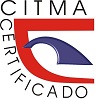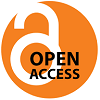Family preparation to care for dysarthria in students with physical motor disabilities
Family preparation to care for dysarthria in students with physical motor disabilities
Keywords:
family preparation, dysarthriaAbstract
The development of the mother tongue plays an important role in the communication process of children, however, currently one of the problems that concern parents and educators of children with physical motor disabilities are the manifestations presented during early childhood in language. before which the family is not always prepared to provide adequate care; That is why it is up to the school to provide the necessary tools for their performance at home. An optimal orientation is necessary for those who have the responsibility of promoting the integral development of their children, from home. That is why this article aims to contribute to the preparation of the family for the attention to dysarthria of children with physical motor disabilities of the Special School "Solidarity with Panama". During the investigation, different methods were used, among which stand out: synthetic analytical, inductive deductive, observation, documentary analysis and interview; allowing us to obtain essential information on the subject and its behavior in educational practice. Intending thus to achieve as results a greater family preparation to attend to the difficulties that students present in language and achieve an evolution in their linguistic and communicative development, in addition to achieving a transformation and modification of the factors that generate possible difficulties for them and carrying out thus a valuable contribution to the integral development of the student; seeing the link between the school and the family.
Downloads
References
motoras (Tesis doctoral). UCPEJV, Ciudad de la Habana.
Bert Valdespino, J. E., Urías Arbolaez, G. D. la C., Pino Torrens, R. E., & Molerio Rosa., L. (2017). Modelo pedagógico de educación familiar para padres de escolares con discapacidad físico-motora. Revista Ciencias Pedagógicas e Innovación, 5(1). https://doi.org/10.26423/rcpi.v5i1.162
Castro Alegret, P L. y coautores (2008), El maestro y la familia del niño con discapacidad. La Habana. Cuba: Editorial Pueblo y Educación.
Castro, P. L. (2003). El maestro y la familia del niño con dificultades. Instituto Centralde Ciencias Pedagógicas: Savethe Children.
Fernández Pérez de Alejo, G; & Rodríguez Fleitas, X. (2012). Logopedia Segunda Parte: Texto
para estudiantes de las carreras de licenciatura en Logopedia y Educación Especial. Editorial
Pueblo y Educación. La Habana, Cuba.
La O, E. M. (2007). La Escuela “Solidaridad con Panamá”. Un estudio necesario. Tesis de Maestría. Centro Latinoamericano de Educación Especial (CELAEE), Ciudad de la Habana, Cuba.
Viera Diaz, M., Avilés Jimenez,B. & Pérez Rodríguez.L (2022). Desarrollar la comunicación en familias de niños con trastornos por déficit de atención con hiperactividad. EDUMECENTRO, 14, e2294. Epult 30 de noviembre de 2022
Zurita, C.R. (2015). Los niños de la primera infancia con limitaciones físicomotoras. Orientación para su atención. Cuba: Editorial Pueblo y Educación.
Published
How to Cite
Issue
Section
License
Copyright (c) 2023 Dayana Salgado Elías, Rajiv Hardy Demestre, Yanay Cortés Díaz

This work is licensed under a Creative Commons Attribution 4.0 International License.
Horizonte Pedagógico es una revista Open Access, lo que quiere decir que todo su contenido es accesible libremente sin cargo para el lector o su institución. Los usuarios están autorizados a leer, descargar, copiar, distribuir, imprimir, buscar o enlazar a los textos completos de los artículos de esta revista sin permiso previo del editor o del autor, de acuerdo con la definición BOAI de open access. Los autores que publican en esta revista están de acuerdo con los siguientes términos: Los autores conservarán los “Derechos de autor” y garantizan a la revista el derecho de ser la primera publicación del trabajo. La revista se encuentra protegida bajo una licencia internacional de Creative Commons Attribution License Atribución 4.0 Internacional (CC BY NC 4.0), que permite a otros compartir (copiar y redistribuir el material en cualquier medio o formato) y adaptar (remezclar, transformar y construir a partir del material), para cualquier propósito, incluso comercialmente. Bajo las siguientes condiciones: atribución (usted debe dar crédito de manera adecuada, brindar un enlace a la licencia, e indicar si se han realizado cambios y no comercial — Usted no puede hacer uso del material con propósitos comerciales. Puede hacerlo en cualquier forma razonable, pero no de forma tal que sugiera que usted o su uso tienen el apoyo de la revista o el autor de la publicación.




















